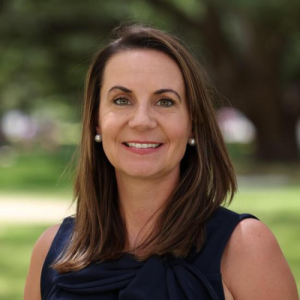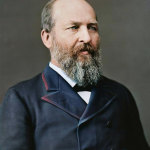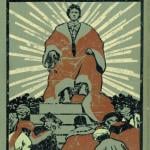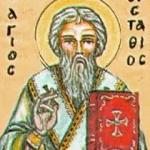You know you are reading a good book when you wish you had read it already. I wish that I had read Priests of History: Stewarding the Past in an Ahistoric Age a year ago. Last fall, while co-teaching an interdisciplinary course at Baylor, I confess that I struggled to articulate why exactly my students should care about history beyond its provision of context for interpreting ideas. Guiding students through our readings from Plato, Nietzsche, McIntyre, and Haidt, I knew that history could offer not only context, but that it could help students grapple with why these ideas matter today. I believe the study of history has value for its ability to shape and form us, but I was unable to put into words its necessity and urgency for our present age. In Priests of History, Sarah Irving-Stonebraker delivers what I was searching for: a concise case for why everyone, not only the historian, needs to engage with the past. (This is why, if I could make this book required reading for anyone, it would be for every college and seminary president.)
Many scholars have tried to understand and explain the cultural changes we are witnessing today. (Jonathan Haidt’s The Anxious Generation is having a much-deserved moment.) Sarah Irving-Stonebraker enters the conversation not only from the field of history, but also from within the church. As such, her work is immensely helpful not only for the historian and the theologian, but also for the pastor and parishioner. Indeed, she argues history is key to Christian spiritual formation and evangelism, and therefore every Christian is called to be what she describes as a “priest of history,” someone who tends and keeps the past.
Untethered from the Past
Part one is worth the price of the book alone, as Irving-Stonebraker deftly defines our current moment as an “Ahistoric Age.” This is more than just a lack of knowledge about the past. It is no longer seeing ourselves as part of a past, or the past as part of us. Thus, the need for history is deeply connected to the need to understand ourselves and our place in the world. In an age obsessed with identity, we have dispensed with one of the most adept tools for forming it—rooting our identity in history.
Irving-Stonebraker repeatedly describes this as a “untethering,” giving the image that without history, we are adrift in the vastness of a now-largely-digital void. This, she suggests, is a by-product of the chief aims for modern western life– self-expression and self-actualization. (p. 26). Because the study of history does not contribute to these objectives, it is considered dispensable. This has left us wondering in an ahistoric wasteland in which “we no longer generally think of ourselves as historical beings.” (p. 30) By framing the decline of historical knowledge in this way, Irving-Stonebraker gets at the problem underneath the problem. It is not simply that students, or our society, or our church members don’t know enough about history—they don’t want to know because they don’t believe it matters for their own flourishing (to say nothing of their communities). As a result, we have lost not only our connection to the past, but also our connection to the transcendent: to God and the narrative of his world and our place in it. This results in the aimlessness that scholars like Haidt have argued is plaguing modern life, particularly for Gen Z in the west. We desperately need the anchor that history provides. This is urgent for the church because if we are to effectively communicate the hope of the gospel, we must be able to identify the source of the hopelessness.
Tending and Keeping
In part two, the title of the book comes into focus as Irving-Stonebraker suggests that we understand the call to be “priests of history” in the tending and keeping of the past. Here she delves deeper into the biblical case for history, as Christians are called to be stewards of God’s redemptive story revealed in history. She proposes that we tend the past by bringing back into the narrative those stories which have been neglected, and we keep the past by holding in tension both the triumphs and failures of history. She illustrates tending the past by highlighting marginalized voices like Sir Doug Nicholls, Aboriginal Australian footballer turned pastor and church planter. She illustrates keeping the past by highlighting Augustine and Frederick Douglass as examples of Christians willing to critique power and call out sin and evil. These are only a few of the many examples she draws upon to demonstrate the necessity and urgency of history for both the world and the church.
History is the Answer
My bias that history is the answer to every problem is not subtle, but Irving-Stonebraker backs my bias in part three, where she further demonstrates how this framework of tending and keeping history is applied to the Christian life. She highlights the ways that thinking of things like time, space, and music can help graft us into the history of the church and form us as Christians. She draws from her own tradition of Anglicanism (which I suspect is surging in the West precisely because of the kinds of historical ties that Irving-Stonebraker writes about, though she does not make that connection explicit) and using historical examples from her own research in both England and Australia. These practices are for our own spiritual formation and are also an integral part of our witness to the world. Indeed, Irving-Stonebraker weaves into the work her own testimony of coming to faith through her exploration of history as a graduate student. In the conclusion she shares this journey in moving detail, making a powerful and personal case for the study of the past.
For the most part, she succeeds in demonstrating how reincorporating lost narratives and confronting uncomfortable evidence from the past can work. One of her aims is to address cancel culture and combat tribalism, which have left people unable to deal with the complexity of the past and the present. In this Irving-Stonebraker makes an important point—that dealing with the parts of the past that make us uncomfortable is necessary and can help us to engage with our own world with nuance. Yet this might be the one place where the work fell flat. While she understandably uses examples from her own work, confronting church’s complicity in the transatlantic slave trade and British imperialism, she quickly offers counter evidence of the church on the front lines of the abolitionist movement. This fails to show how we might reckon with evils intentionally hidden by once-heralded leaders of the church. What should be do when missionaries abuse children at their boarding school and then hide the truth for decades? How should we respond when we learn that the president of a Christian university covered up the assault of a student over a century ago? A deeper application of her ideas might have offered a guide for grappling with sins and evil beyond having to take the good with the bad in a complicated past.
Despite this, I found Priests of History to be a profound articulation of the significance of history and its importance to our lives. I wish I had read this book at year ago, and I am sure that I will read it again. It provides a compelling framework for how history might help form us, our students, and our churches, so that we might offer the anchor of the gospel to those who find themselves drifting. Even in an ahistoric age, there is hope in the age to come.
 Dr. Elizabeth Marvel serves as the Chief Mission Officer for Global Action. In addition to teaching courses in our program, she oversees faculty development and curriculum writing. Liz holds a Ph.D. in History from Baylor University, where her research focused on the history of Christianity in the medieval period and the majority world, with emphases on pastoral care and women in the church. Liz also earned an M.A. in Church History from Gordon-Conwell Theological Seminary and a B.A. in History from Sweet Briar College.
Dr. Elizabeth Marvel serves as the Chief Mission Officer for Global Action. In addition to teaching courses in our program, she oversees faculty development and curriculum writing. Liz holds a Ph.D. in History from Baylor University, where her research focused on the history of Christianity in the medieval period and the majority world, with emphases on pastoral care and women in the church. Liz also earned an M.A. in Church History from Gordon-Conwell Theological Seminary and a B.A. in History from Sweet Briar College.
In addition to her work with Global Action, Liz is a lecturer in History at Baylor University and Truett Seminary. She regularly presents at the Conference on Faith and History and the American Society of Church History. The daughter of Southern Baptist missionaries, Liz grew up in Latin America and currently lives in Waco with her husband and their two children.

















